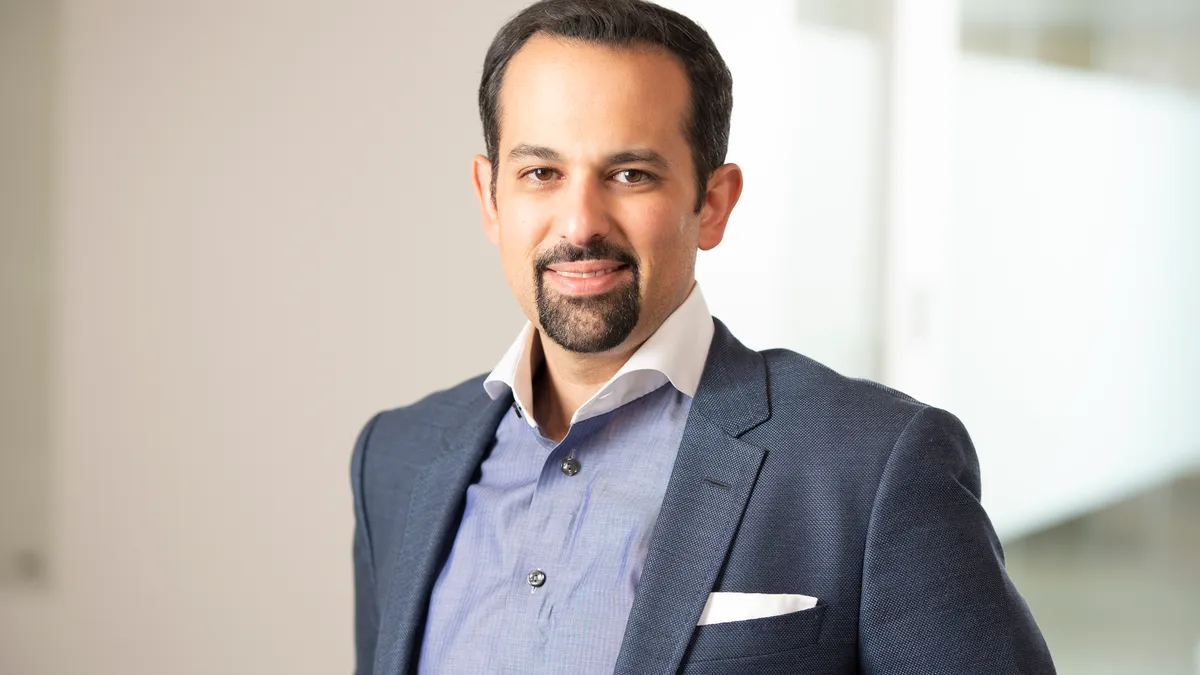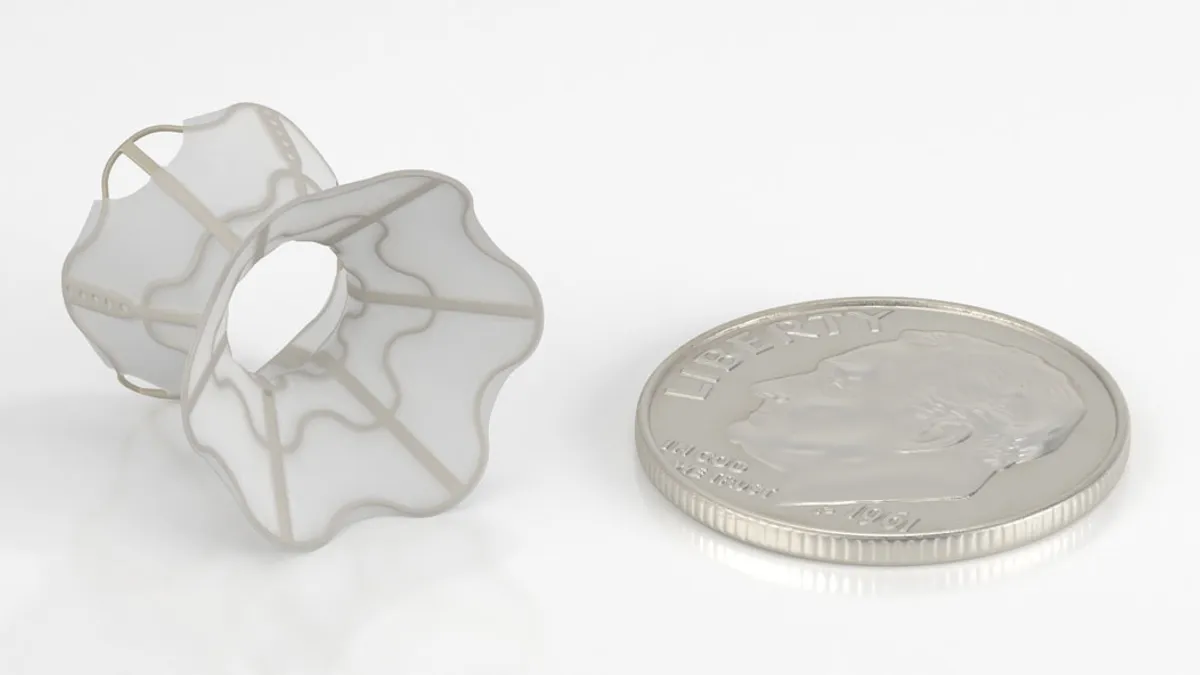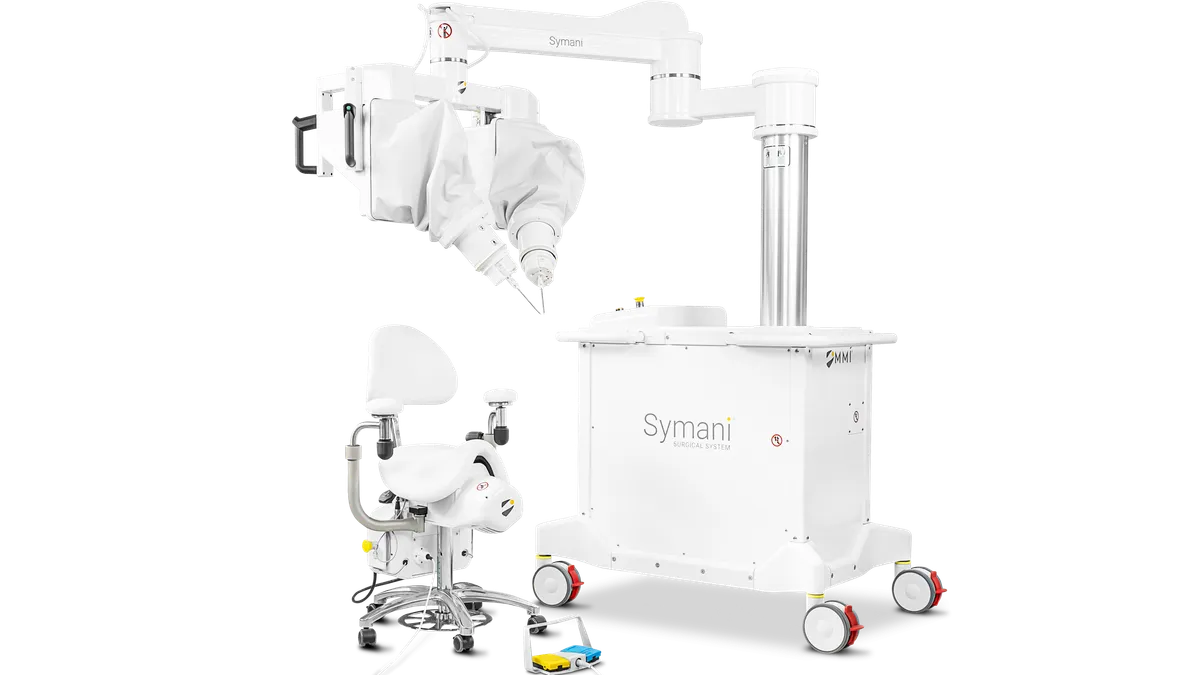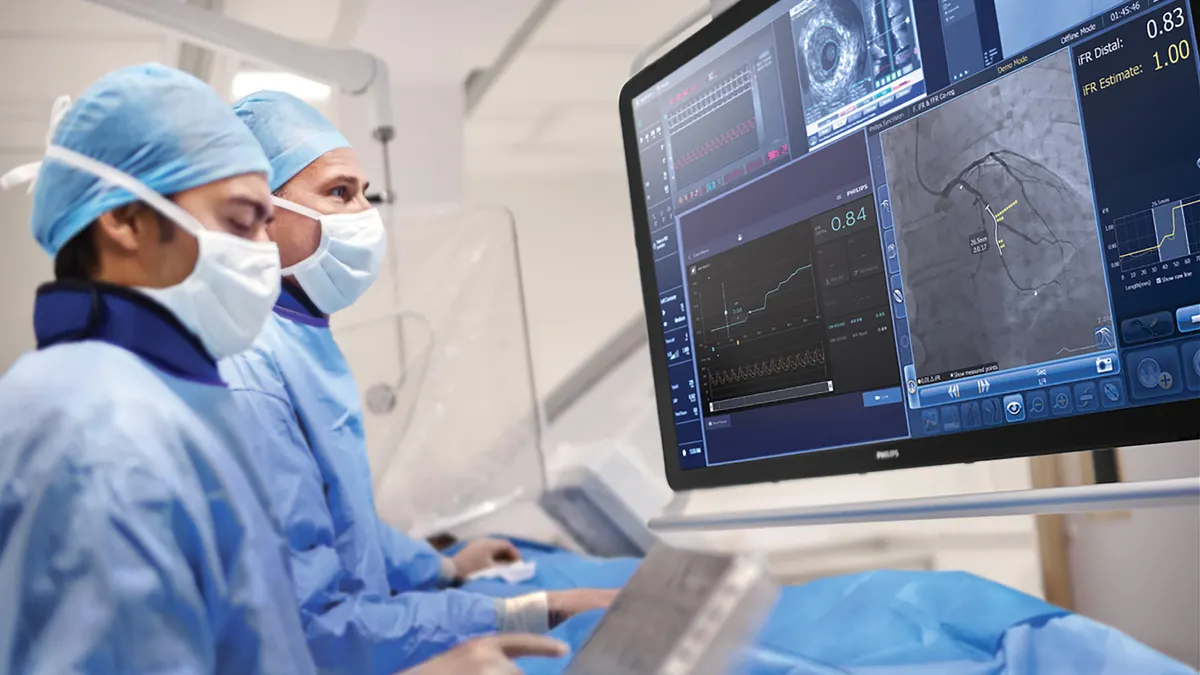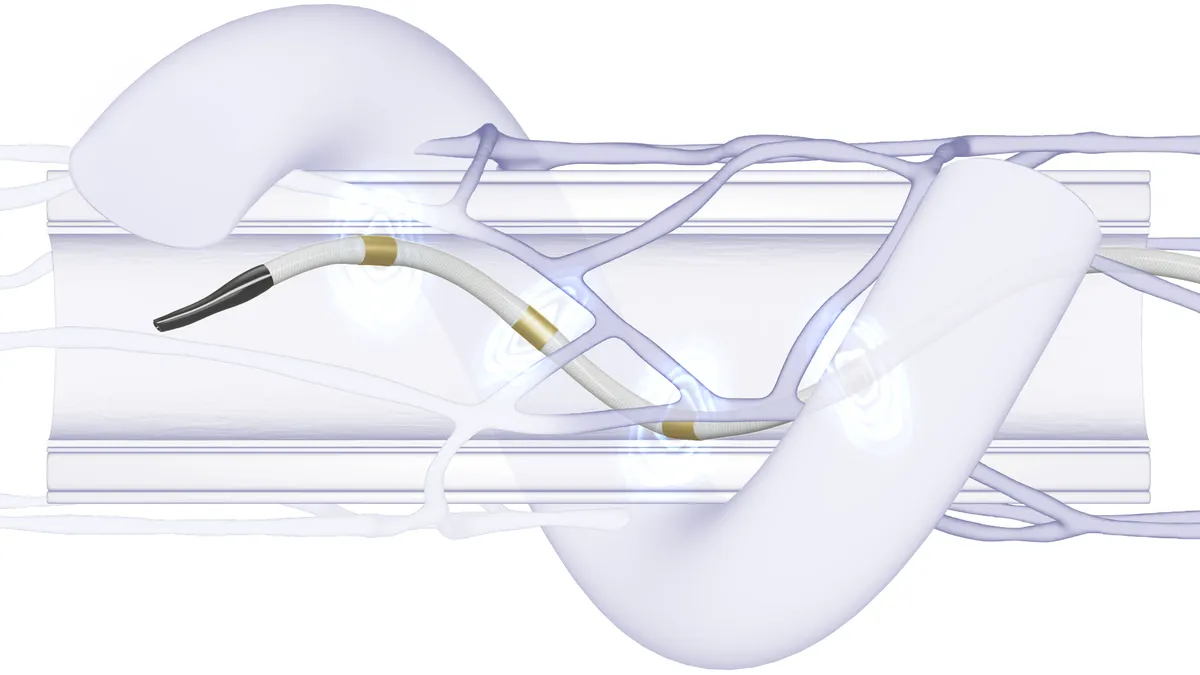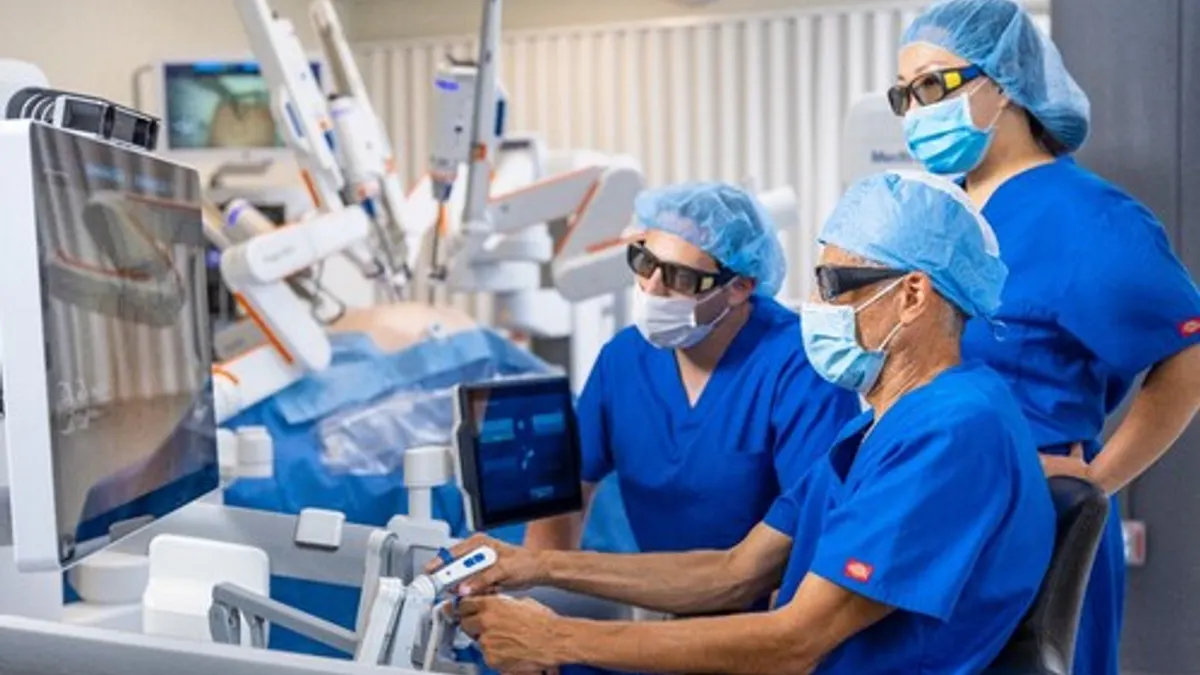The colorectal cancer screening market is heating up in 2022, with three large pivotal trials expected to be made public this year, as liquid biopsies in development at Freenome and Guardant Health pose a potential competitive challenge to Exact Sciences' market-leading Cologuard stool DNA test.
Guardant Health CEO Helmy Eltoukhy told MedTech Dive the precision oncology company plans to launch a liquid biopsy for colorectal cancer screening in the first half of the year, called Guardant Shield, and which is meant to challenge Exact Sciences' Cologuard as well as invasive colonoscopies.
"If you asked patients what they prefer, a blood test, Cologuard, [fecal immunochemical test] or colonoscopy, 64% of patients prefer blood over all other modalities combined. That's pretty compelling, and that's regardless of sensitivity," Eltoukhy said.
Craig-Hallum analysts wrote in a research note last month that Exact Sciences is "continuing to defend its fecal approach," while Guardant and Freenome "are both vying for a potentially easier to use, but more frequent (once per year) blood test." They added that the real risk this year for Exact Sciences is positive data from either Guardant or Freenome in the form of a highly sensitive blood-based test.
Guardant in December announced it reached its target enrollment of 12,750 patients in ECLIPSE (Evaluation of ctDNA LUNAR Assay In an Average Patient Screening Encounter), a prospective, multi-site registrational study to evaluate the performance of the company’s LUNAR-2 blood test to detect colorectal cancer in average-risk adults.
The company expects results from its ECLIPSE trial in 2022 and plans to submit a premarket approval (PMA) submission for the Guardant Shield colorectal cancer screening test to the FDA in the second half of the year. In addition, it aims to launch the liquid biopsy as a lab-developed test in the first half of the year.
"If ECLIPSE reads out well, it's going to be a very significant milestone for the industry," Eltoukhy said.
The CEO also spoke about the potential of obtaining a multi-cancer platform and the effects of the COVID-19 omicron variant on the company's financial results.
This interview has been edited for clarity and brevity.
MEDTECH DIVE: How is 2022 shaping up for Guardant Health in terms of your product portfolio?
HELMY ELTOUKHY: 2022 is going to be a fantastic year for us. We're making a lot of progress with our portfolio. This will be the first year that we'll have products that really bring to fruition the vision we had when we started Guardant almost 10 years ago. We'll have products this year in all three major categories of cancer care. In therapy selection, we have four products now: Guardant360, Guardant360 Response, Guardant360 CDx and Guardant360 TissueNext. In the cancer survivors segment, or the recurrence monitoring segment, we have Guardant Reveal. And, in screening, we'll be launching our first test there the first half of this year, called Guardant Shield, and that will be for screening for colorectal cancer. So, instead of a colonoscopy, you could potentially get this blood test.
The next indication for screening is lung cancer. We initiated in December a nearly 10,000-patient trial comparing our blood test to low-dose CT scans. We have 87% sensitivity for early-stage lung cancer, which is very exciting since right now there's only 14% compliance with low-dose CT scans today in the high-risk population. Having a blood test that has very high sensitivity and high performance would be a game changer.
If you look at those two cancer types — lung cancer and colorectal cancer — we'll soon be addressing the No. 1 and No. 2 leading causes of death from cancer. We think we're going to make a very big dent in terms of mortality with the technology.
And, finally, the last and probably the biggest announcement [in 2022] that we're going to have is the launch of our new liquid biopsy platform we call the Smart Liquid Biopsy. This is as groundbreaking as the launch of the world's first comprehensive liquid biopsy [ Guardant360] in 2014. Liquid biopsies versus tissue biopsies were like cellular phones to landlines. We believe the Smart Liquid Biopsy is like your iPhone compared to the old flip phone. We're building in an enormous amount of capabilities.
The Smart Liquid Biopsy will enable countless applications. It will have a 100X larger genomic footprint than Guardant360 CDx, much higher sensitivity, and it'll contain the "hardware" for genomic, epigenomic and immune profiling. What that will do is essentially fuel applications, not just deep genomic analysis but analysis of the tumor microenvironment, immune pathways and even complex prognostic indicators, ability to monitor therapeutic response and many other applications. We're very excited about this new platform. We think it's a new chapter of liquid biopsy and is years and years ahead of where the competition is.
We are the leading liquid biopsy company. The competition is trying to catch up to where we are now, and there are other new players that are coming in trying to match what we have. What went into this is about 10 years of research. We've processed now over 250,000 clinical liquid biopsies.
In the colorectal cancer screening space, how do you plan to compete with Exact Sciences' Cologuard stool-based test?
ELTOUKHY: It comes down to what it means to have a blood-based colorectal screening test. If you asked patients what they prefer, a blood test, Cologuard, [fecal immunochemical test] or colonoscopy, 64% of patients prefer blood over all other modalities combined. That's pretty compelling, and that's regardless of sensitivity. These other modalities, whether it's stool or colonoscopy, are so unpalatable. Scheduling a colonoscopy is obviously challenging, especially for underprivileged and underserved communities. Taking two days off of work is often a non-starter. And, regardless, no one likes to do that prep.
You think about stool. It's just an uncommon collection specimen in modern medical practice. Even the conversation around stool with a [primary care physician] is sort of less than desirable versus if you think about how easy a blood test is. Somebody coming in for an annual physical or for a checkup or wellness visit, it's just another test that's tacked on to the other battery of tests that one would take, whether it's a [complete blood count] or a lipid panel. The conversation is very simple: it's "oh, you're out of date for screening, let's add this colorectal test as well." It's a five-second conversation. It doesn't need a lot of prep or motivation on the part of the physician. That's why compliance with [prostate-specific antigen] and blood tests are about 90% versus [fecal immunochemical test] compliance of less than 50% and compliance with Cologuard in the high 60%, despite all the efforts to bring it up.
We reached target enrollment for our 13,000-patient trial last year of the LUNAR-2 blood test to detect colorectal cancer in average-risk adults. We announced that in December. We believe we're in full position in terms of blood-based colorectal screening and we're well ahead of the competition in terms of where their trials are at. Now, it's just wait and see. If ECLIPSE (Evaluation of ctDNA LUNAR Assay In an Average Patient Screening Encounter) reads out well, it's going to be a very significant milestone for the industry.
Subject to positive study results, the number of patients currently enrolled in ECLIPSE is targeted to support a premarket approval (PMA) submission to the FDA in 2022. And, you mentioned the SHIELD (Screening for HIgh-frEquency maLignant Disease) lung cancer study that is expected to enroll nearly 10,000 patients in 36 months. What other indications are you working on?
ELTOUKHY: Lung cancer is our next indication. We have other indications as well that we're working on: pancreatic, bladder, liver and breast cancer. So, those are all in the works. The technology is very broad. We think we can very easily get to a multi-cancer platform. But, we're taking kind of systematic approach. Obviously, there are others out there that are taking a one-size-fits-all approach to multiple cancers. We don't believe that is in the best interests of patients. There are four elements that are needed to ensure that a blood-based screening test, or any screening test, actually saves lives — and that's what we're focused on as a company.
It's about having technical performance that is high sensitivity in the early stage setting. Otherwise, you're essentially moving people away from better modalities, such as mammography, CT scans or colonoscopy, to a poorer maybe more palatable modality like a blood test. One of the most important factors is having very high sensitivity for early detection. That's, unfortunately, where a lot of these other tests fail. These very broad 50-cancer tests where they have somewhere in the 15% to 17% sensitivity range for Stage 1 disease. That doesn't save lives. That, unfortunately, gives people a false sense of security.
The second element is FDA approval because that ties in with Medicare, which can't cover a test that's not FDA-approved. And so we have to ensure that there's a clear and attainable regulatory pathway for these tests. The other element is getting to full private payer reimbursement. When you have tests that are many hundreds of dollars, as some people are trying to put out there, that just doesn't work. It has to be reimbursed. And, then finally, it has to be in guidelines because health systems are increasingly in a value-based care scenario. They need essentially to hit quality measures. The tests that are in guidelines allow them to qualify from a screening compliance point of view. That's just the reality of how the healthcare system works. It needs those elements.
Your point about sensitivity when it comes to a blood test that has the ability to detect 50 types of cancer is well taken. But, at least on paper, do you see the value of a liquid biopsy that only requires a single blood draw to screen for all those cancers?
ELTOUKHY: That is our goal. So, when we have our lung data and we have other cancer types, that will be a single test that tests for all of those cancers. But, it'll do it in a way that has very high sensitivity for early stage cancers. It will be something that saves lives because it's better than the current standard of care. That's our goal: to get there, but get there in a way that actually moves the needle.
Guardant Health reported third-quarter revenue growth of 27% in November, and you'll be reporting financial results for the fourth quarter and full year 2021 on Feb. 23. But, what are you seeing in the marketplace in terms pandemic-related headwinds?
ELTOUKHY: It's been something that we have been facing for almost two years now. It will be two years in March. In the beginning of the pandemic, it was reported that the mortality rate from COVID-19 in late-stage cancer patients was 30%. So, when these clinics lock down and restrict access, it certainly causes headwinds. That access has ebbed and flowed but it's hovered around 50% accessibility for really the last six to nine months. It's come down a little bit with omicron. That being said, we've executed very well in this environment. We've moved a lot of our detailing to virtual, digital, and non-personal and that has worked really well. We've certainly built a whole new muscle in this environment that will pay dividends for years to come. But, there's no doubt that growth, as good as it was, could have been even higher had there not been this backdrop of the pandemic.


